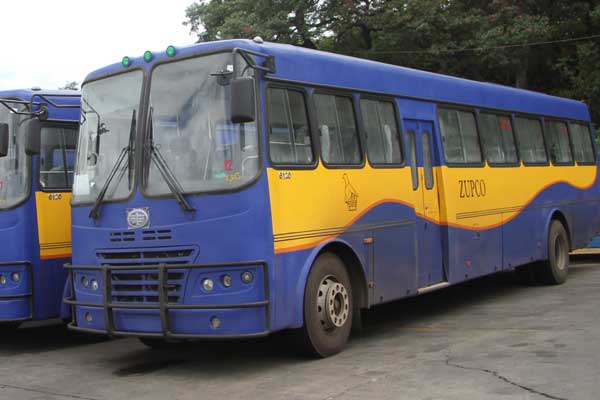
SINCE Zimbabwe’s independence in 1980, public transporter, the Zimbabwe United Passenger Company (Zupco), has probably been the most loved public entity by both the general populace and the State, reason being that, for the public, it has been their saviour in hard times and for the State, it has been a convenient ally in helping the ruling elite show a facade of a caring government.
NewsDay Comment
Almost every 10 years, the public transporter’s life is reinvigorated by an injection of brand new buses from across the sea. And at one time, the transporter even boasted of train buses that plied urban routes.
Well and good, but unfortunately Zupco has nothing to show in terms of success over the past 39 years. The thousands of bus shells strewn at all the company’s depots across the country are evidence of neglect.
The abandoned bus shells do not only keep reminding us of the company’s many years of dedicated service, but also show us the opportunities that have been lost by the passenger transporter.
Fast-forward to 2019 where new buses have again been ordered and are being delivered to give Zupco yet another lease of life. While we keep commending such efforts, we, however, wish to point out that subsidising the entity is welcome, but there is no harm in letting the company run profitably. Many a time, there has been too much political meddling at Zupco which has largely run down the company.
The latest attempt comes as government is trying to soften the blow of skyrocketing costs of public transportation. The new policy will cost US$8 million a month, according to Finance secretary George Guvamatanga.
According to President Emmerson Mnangagwa, the parastatal is getting 500 new buses in total, to service the whole country. Right. The bus shells we see today were once brand new buses, but were never maintained or serviced until they could simply not run. The only thing that has happened at Zupco is repair work that has mostly been done through cannibalising other buses.
- Chamisa under fire over US$120K donation
- Mavhunga puts DeMbare into Chibuku quarterfinals
- Pension funds bet on Cabora Bassa oilfields
- Councils defy govt fire tender directive
Keep Reading
Acting Local Government minister Amon Murwira tells us that a new prepaid electronic ticketing system has been developed that would make Zupco more efficient. He said: “It makes customers to refrain from carrying cash and pay in advance, and it is efficient. According to our calculations, Zupco can actually make profit at 50 cents; even 30 cents. Transport in this country is overpriced and we are drawing through technology to reduce it.”
We, nonetheless, wish to urge Murwira and colleagues to factor into the calculations the fact that everything which goes into the transport business, except the drivers and mechanics, is imported using a very scarce and expensive resource called foreign currency.
We can reduce the costs through technology, granted, but in the wake of scarce foreign currency, technology can be useless. Moreover, none of the general public has ever been schooled about this new ticketing system. Besides, the company’s buses are still too few to satisfy demand, let alone raise enough for the company to break even.
Government needs to seriously rethink on the Zupco business model. The story of this beloved public transporter is fascinating, but tragic — kind of like the story of Zimbabwe itself: A country full of promise, but struggling because the ruling elite has cared more about their satisfaction and those of their cronies, relegating the rest of the country to feeding on the crumbs of broken policies.







